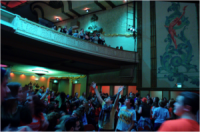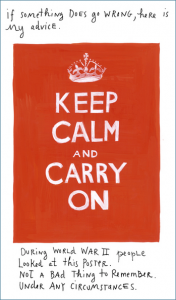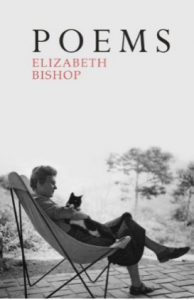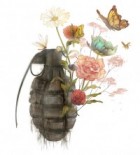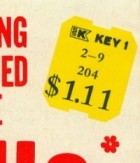What TW Readers Are Saying
Viva la Talk—Donate to TW!
Help us keep the talk going. Please donate to Talking Writing—
a unique nonprofit magazine that sparks the lively conversations
among writers and readers that you’ll find below.
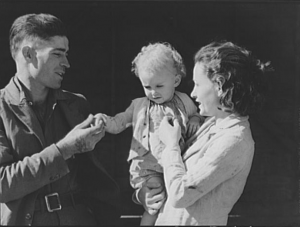 Fame, Fortune, and a Purposeful Life:
Fame, Fortune, and a Purposeful Life:
"Oh, man. I just laughed out loud. Which is something I’d hoped to stop doing years ago. This is so great.... Completely snuck up on me. Loved everything from the 'methadone clinic for writers' to the ridiculously spot-on Horatio Alger reference. "
— Peter Steinfeld
Some years ago, I decided to stop wondering what the point of 'all this fiddle' was and just do it. Now I know that doing it is the point."
— Lawrence Kessenich
Steve Lewis responds:
That intentionality thing…it’s been percolating ever since I read James Wright in grad school (way way back in the last millennium) and understood for the first time that 'if I stepped out of my body I would break / Into blossom.' I just didn’t trust it enough until recently."
Do Fans Love Authors or Their Books?:
The fascination for me is to see how renowned writers handle their success. Meeting them in person can help with that insight."
— Mathew Paust
As an author, I’ve had letters from readers who clearly feel they know me because they’ve spent time in the company of my novel. At first I found their familiarity a bit startling—and it’s certainly a trifle odd when you encounter it meeting a reader face to face. But—hey—it’s part of the territory. I know when I write, I set out to shake the reader down to every cell, to give them an experience they carry in their hearts afterward. That’s what I feel a good book should do. I can’t complain if it’s worked!" — Roz Morris
Martha Nichols responds:
I, too, study book jacket photos of authors, though they usually disappoint me in terms of finding out who that person really is. They’re designed...to convey some generic idea of serious 'writer.' From that perspective, I’m very much in tune with [the] desire to see and hear authors in a more unvarnished way."
"I had the chance a few months ago to interview (by phone, of course) the man I consider the country’s best, most-under-appreciated, and smartest singer/songwriter, Randy Newman. I turned down the opportunity without a moment’s hesitation. I knew he couldn’t live up to my expectations. No one could. And I didn’t want to risk discovering that he could be impatient, bothered, or as disgusted by the process of assembly line interviews as anyone of his stature should be. So I passed on the opportunity. A colleague was only too happy to do the job. Her report? Newman was gracious. Funny. He listened as much as he talked. 'A delightful man,' she said. And I was left to curse my all-knowing ways." — Jeremiah Horrigan
"When I was at Harvard, '66–'69, Richard Tillinghast was the resident workshop poet. His was also a class of about ten. He never commented on anything, and I can still remember the horrible feeling of receiving back a poem without a single word of response." — Meryl Natchez
I quite enjoyed your memoir about studying with Elizabeth Bishop. Do you think it still affects your writing? I find the people I studied with as an undergrad had an inordinate effect on my writing, and it took me time to figure out my own path." — Carol Dorf
Robert Boucheron responds:
Yes, many of Bishop’s comments still resonate in my head. As we know, she was a fine prose writer as well as a poet. Much of what she said applies to both types of writing. Let nouns and verbs do the work, for example. I think that prose benefits from attention to metaphor, meter, and authentic voice. Dialogue, for example, requires a good ear, as much as lyric poetry does. Bishop had a sly sense of humor, and that has been a model for me as well. It is possible to point out the ridiculous without being sarcastic."
People don’t always recognize that some writers are just plain prolific; for instance, they say that Louisa May Alcott wrote over 300 novella-type serials called Sensation fiction (which amounted to risque-for-the-times romantic thrillers). In her own journals she talks about writing as an obsession that takes her over for manic periods of productivity. Imagine had she lived the life that has happened to King, where Hollywood and the publishing machinery were at full thrust." — KC Redding-Gonzalez
One of the secrets to King’s success—and something that makes him very brave in my book—is that he is not afraid to imagine what it would be like if his greatest fears were real. A lot of us want to ignore what we are afraid of—especially since so much of that fear stems ultimately from a fear of death. King turns and looks." — Lara De Lucca
Wendy Glaas responds:
I’ve got to wonder if the genre (horror, fantasy) just doesn’t invite a lot of critical love in general. But if you strip away the vampires, ghosts, possessed cars, rabid dogs, etc., you’re still left with the classic elements of storytelling."
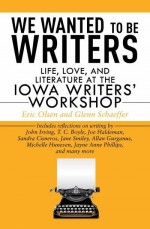 What’s a Creative Writing Program Good For?:
What’s a Creative Writing Program Good For?:
"Certainly, it’s the stimulation of fellow students and workshopping and being forced to write. But you can’t discount the 'contacts and networking' aspect of it, either. Two of the second-year fiction writers in my daughter’s program already have agents. If and when she ever gets to the point of creating something publishable, she’ll have several people to talk to about the whole process." — Linda Handman
I counsel my talented writing students to pursue MFAs—especially now, with the economy not quite where we want it to be—and offer to them the idea that, for two years, they’ll be free to write all the time. That’s what seems most attractive to me. That, regardless of whether you’re paying for it or on fellowship, you are essentially given two years to do nothing but write."
— Lorraine Berry
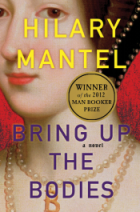 Women Writers and Bad Interviews:
Women Writers and Bad Interviews:
Being a woman and...an author who is known most for my young adult books, I get asked some really strange questions. My recent favorite: Because you write for young adults, do you consider yourself an adolescent? I’ve also been asked if I write as a hobby because I’m married. (Presumably because they think I don’t need a job…because I’m married? Which, I believe, puts us squarely mid-20th century somewhere.)" — A.S. King
I wonder whether a part of this issue is that we forget we aren’t having a private, social conversation, but rather are engaged in a professional endeavor when conducting an interview. About the Mantel/Gross interview, I tuned in midway while driving and wasn’t paying full attention. From the interview, I’d mistakenly assumed the book under discussion was about Mantel’s weight/body struggles." — Arlyn Miller
We’ve recently introduced interviews in Carve’s Premium Edition, and this has made me even more sensitive to choosing our questions and making sure we approach all of our interviewees with dignity and respect. Thank you."
— Matthew Limpede
The beautiful thing about being a poet is that there’s very little in the way of celebrity, and people would rather hear you read your work than dish on your personal life." — Kim Triedman
Lorraine Berry responds:
I think it’s right that when any author gets asked a question that crosses a boundary, it’s acceptable, nay, necessary, to stop the interviewer in his/her tracks and ask, 'Why are you asking me that?' It’s the only way...for interviewers to think about what they’re doing."
Finally—someone who knows how to READ!!!! These are the most cogent points I have seen about 50. It’s not about sex, any more than rape is about sex."
— Patricia Mandell
I am involved with the Afghan Women’s Writing Project, and the stories I help women write often involve complete dominance by men, and it is not something to be taken lightly. Women are tortured, sold, locked inside and beneath burqas." — Elizabeth Titus
Karen Ohlson responds:
What James does for the stalking, controlling male partner in her books is not unlike what Ayn Rand does for laissez-faire capitalism in hers. She loads the dice to make his point of view seem almost reasonable. In real life, though—as you point out, Liz—scenarios of dominating men requiring female submission can be much more dangerous."
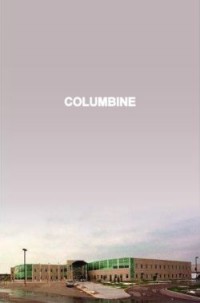 Teaching Writing When the Unimaginable Happens:
Teaching Writing When the Unimaginable Happens:
"It sounds like an amazing journey you took with your students. And this piece has all the elements that make Talking Writing so special—it relates the fullest story possible and makes us question our own assumptions and makes us think. By helping us puzzle through life’s mysteries, it expands our own mindsets." — Judith Ross
Readers subscribing to Kindle is much like collecting. At the start of any collection (let’s say elephant figurines, for example), you tend to grab at everything. But as the collection grows to immense proportions, you become highly selective. That is what I see happening here." — Freddie Remza
It’s interesting to hear how many don’t read the e-books they download for free. I rarely do, but I always read something I pay for. I’ve also noticed that books that are free often get a lot of negative reviews from people who wouldn’t have ever paid for the book, because it clearly just wasn’t their cup of tea, so I don’t think it’s the wonderful marketing strategy some would have authors believe."
— Tahlia Newland
David Biddle responds:
Buying a book in the old days was such a treat. You'd go into Borders or your neighborhood store wanting to check out the latest Alice Munro story collection and you'd come out with five other books you couldn’t help yourself with. And they all cost $15–25, maybe more. And you were so excited! A book of Randall Jarrell essays, a new bio of Anais Nin, novels by Naipaul and Matthiessen, a brand new copy of Annie Dillard’s Teaching a Stone to Talk, plus the Munro, of course. You'd just dropped, say $90. And it felt utterly glorious. Fast forward to the bookstoreless planet. I love e-books. Don’t get me wrong. But it’s really hard to go online these days and spend $90 on books. You have about 200,000 free books to choose from, and another 300,000 (or a million, who the hell knows) between 99¢ and $3.00. Then there are all those noted above, sitting below $9.99. And, finally, the crazily priced $15.99 bestsellers. How do you decide? Sometimes I think going the 'free' option is just the easy way out."

